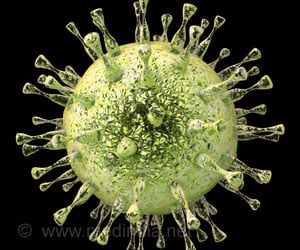Reactivation process of herpes viruses after the acute infection has been finally identified according to a new study published in a journal.

‘Long-standing puzzle on the reactivation process of herpesviruses has been finally solved. A new study reveals that herpes viruses use small RNA molecules ( microRNAs) to reprogram their host cells to their advantage.’





However, they wake up from this dormant phase, under certain circumstances and multiply further to attack other cells — the exact cellular mechanism of which is unknown until now. "How herpesviruses reactivate from a dormant state is the central question in herpesvirus research. If we understand this, we know how to intervene therapeutically," says JMU virologist Lars Dölken.
Scientific Puzzle of Herpes Virus
The present study for the first time has revealed that a viral microRNA (called miR-aU14) acts as a master regulator to induce the reactivation of the herpesviruses, exclusively human herpesvirus 6 (HHV-6) that is known to infect 90% of all people by triggering its own reactivation.Auto-trigger through miR-aU14 selectively interferes with the maturation of several microRNAs of the miR-30 family and also affects a cellular signaling pathway, the so-called miR-30 / p53 / Drp1 axis.
The trigger pathway also induces mitochondrial fragmentation, and interferes with the production of type I interferons (cell signalling to the immune system).
These findings thereby reveal therapeutic options to either prevent the reactivation of these viruses or to specifically trigger it in order to then eliminate the reactivating cells.
Advertisement







